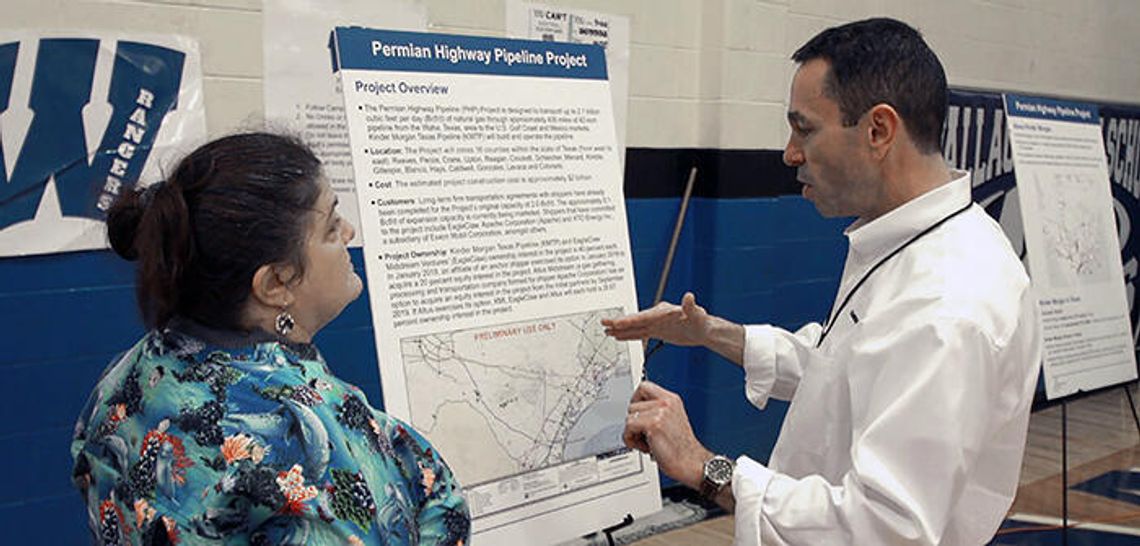Kyle-area residents packed Wallace Middle School to press Kinder Morgan on the company’s proposed 430-mile underground natural gas pipeline.
But the open house, hosted by Kinder Morgan officials, left some residents with more questions than answers.
Kinder Morgan representatives met with residents at different stations with a presentation on the logistics of the pipeline.
PLEASE LOG IN FOR PREMIUM CONTENT. Our website requires visitors to log in to view the best local news.
Not yet a subscriber? Subscribe today!










